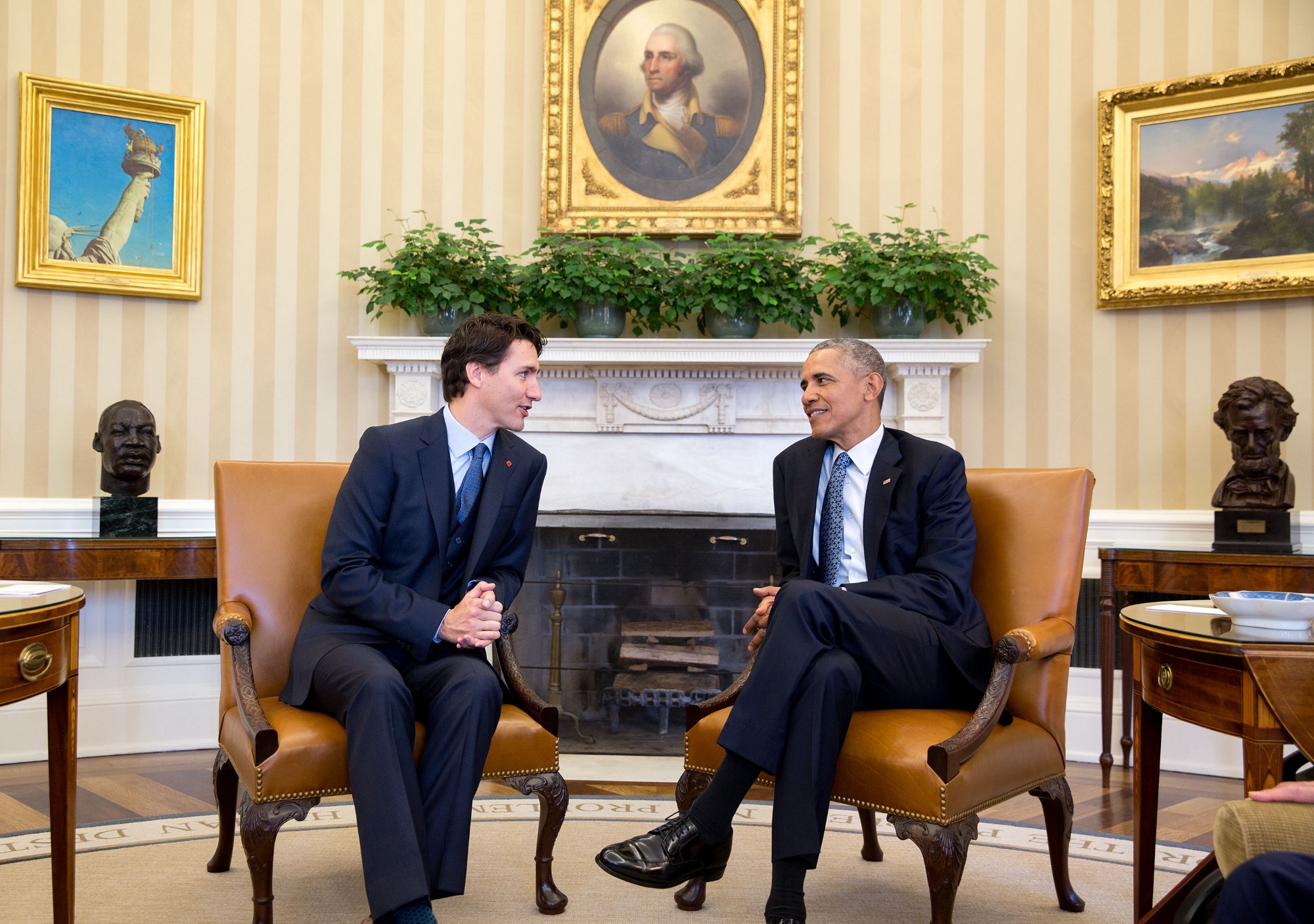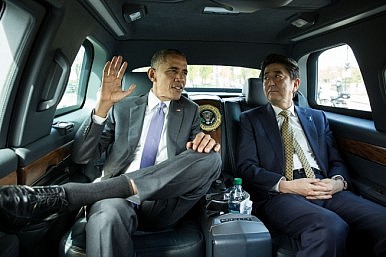Last Wednesday Prime Minister Trudeau, President Obama, and Mexican President Enrique Pena Nieto, the so-called “three amigos” concluded the first NAFTA summit in Canada since 2007. The NAFTA leaders announced closer co-operation and sent a message of continental unity against the tides of economic nationalism now blowing due to Britain’s exit from the EU and Donald Trump’s ascendancy. NAFTA has been contentious since it was first introduced, and plenty of critics have pointed to its adverse affect on Canadian and U.S. wages as well as Mexico’s rural economies. The most significant outcome of this meeting was all three leaders commitment to ensuring that, by 2025, half of North America’s electricity will be produced without greenhouse gas emissions. Yet it was also an opportunity to show that free trade deals can work and that the three NAFTA countries are unified in the goal of maintaining economic and political ties.
In today’s uncertain economy, job creation and financial mobility feel more like relics of the past. People often look to the rise of globalization and trading blocs, such as the EU and NAFTA, as the source of these woes. The Brexit vote likely marks the end of a 40-year cycle we can call “peak globalization” and championing this sentiment of dissatisfaction in North America has been presidential nominee Donald Trump. Trump recently stated his intentions to renegotiate the terms of the NAFTA agreement in order to “get a better deal for our workers […and] if they do not agree to a renegotiation, then I will submit notice under Article 2205 of the NAFTA agreement that America intends to withdraw from the deal.”
The vision Trump conjures is one of alluring simplicity in which he promises to achieve “economic independence” by abandoning globalization, instead using American workers to produce American goods. “Globalization has made the financial elite who donate to politicians very wealthy. But it has left millions of our workers with nothing but poverty and heartache,” he said. The recent summit was a time for the three leaders to combat this narrative, as Prime Minister Justin Trudeau, warned Tuesday, “Turning inwards […will come] at the cost of economic growth.” “Restricting trade or giving into protectionism in this 21st century economy will not work,” Obama told Canadian lawmakers. “Even if we wanted to, we can’t seal ourselves off from the rest of the world.”
A new poll suggests that only one-in-four Canadians believe that the North American Free Trade Agreement has been good for this country. Respondents in the “manufacturing-heavy” provinces of Ontario and British Colombia were most likely to say NAFTA has hurt Canada, according to the Angus Reid Institute. The loss of well-paying manufacturing jobs has long been the greatest point of contention and argument against signing such free trade deals. Yet the expansion of manufacturing jobs is not synonymous with prosperity; as countries grow richer, manufacturing’s share of employment declines. U.S. manufacturing output is 54 percent higher today than in 1994. The jobs have vanished because companies have learned to produce more goods with fewer people. Obama said automation has had a more devastating effect on the “nostalgia” of being able to support a middle-class family with a manufacturing job and no college degree, than the outsourcing of jobs to low-wage countries.
However, unlike the support for the Brexit, only nine per cent of Canadians want to end NAFTA completely, while more than three times as many people, 34 per cent of respondents, would like to see the deal renegotiated. “There is no appetite to scrap trade,” said pollster Shachi Kurl. “Canada […]has morphed into a pro-trade country.” Polls last year found 57 per cent of Canadians saw international trade as the number one foreign policy priority. The question then becomes though, if Trump is elected, could the U.S. simply leave NAFTA? There is ample precedent for U.S. presidents unilaterally withdrawing from treaty obligations, as former U.S. president George W. Bush, for example, withdrew from the Anti-Ballistic Missile Treaty. Yet, with NAFTA there is murkiness over whether it counts as a treaty or an executive decision. Depending on this distinction the president may need the approval of Congress, but it remains uncertain.
The tides are changing, throughout the world we are seeing a backlash against the current architecture of our financial systems. Even Obama and Pena Nieto have acknowledged that the benefits of free trade and globalization have not filtered down to average citizens enough. The U.S. president, in particular, said ordinary people have a “legitimate gripe about globalization” because of rising inequality. Britain’s vote to leave the European Union signaled a global economic frustration among working-class voters. In the fight against rising protectionism, world leaders have to prove that the system actually works for more people, and genuinely raise standards of living.
Photo: Canadian PM Trudeau and US President Obama in Bilateral Meeting, 2016. Official White House Photo by Pete Souza. Public Domain.
Disclaimer: Any views or opinions expressed in articles are solely those of the authors and do not necessarily represent the views of the NATO Association of Canada.
Photo courtesy of Pete Souza via Flickr




